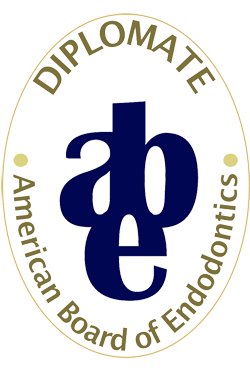 Post-Treatment Care Tips
Post-Treatment Care Tips
A root canal can save a tooth from severe damage or infection, restoring its function and relieving pain. However, the success of the treatment doesn’t end when you leave the endodontist’s office. Proper post-treatment care is essential to protect your tooth, promote healing, and ensure the longevity of your dental work.
1. Follow Your Endodontist’s Instructions
After your root canal, your endodontist will provide specific aftercare guidelines tailored to your case. These instructions may include:
- Taking prescribed medications, such as pain relievers or antibiotics.
- Avoiding certain foods or activities for a set period.
- Scheduling follow-up appointments to monitor healing.
Adhering to these instructions is the best way to ensure a smooth recovery.
2. Be Mindful of Temporary Restorations
In most cases, a temporary filling or crown is placed after a root canal to protect the treated tooth until a permanent restoration is applied. During this time:
- Avoid chewing on the treated side of your mouth to prevent dislodging the temporary restoration.
- Be gentle when brushing or flossing around the treated tooth.
- Notify your dentist if the temporary filling or crown feels loose or falls out.
A permanent crown or filling will be added later to strengthen the tooth and restore its full function.
3. Manage Discomfort
It’s normal to experience some mild discomfort or sensitivity after a root canal. To alleviate pain:
- Use over-the-counter pain relievers like ibuprofen or acetaminophen as recommended.
- Apply a cold compress to the outside of your cheek to reduce swelling.
- Avoid extremely hot or cold foods and beverages, which may temporarily irritate the treated area.
If pain persists or worsens after a few days, contact your endodontist to rule out complications.
4. Maintain Good Oral Hygiene
Keeping your mouth clean is critical to prevent infection and support healing. Follow these oral hygiene tips:
- Brush your teeth gently twice a day using a soft-bristled toothbrush.
- Floss daily, being cautious around the treated tooth until it’s fully restored.
- Use an antiseptic mouthwash to reduce bacteria and keep the area clean.
Good oral hygiene not only aids recovery but also helps protect the rest of your teeth from future issues.
5. Eat Soft Foods
In the days following your root canal, stick to a diet of soft, non-sticky foods to avoid putting stress on the treated tooth. Some options include:
- Soups, smoothies, and mashed potatoes.
- Yogurt, eggs, and cooked vegetables.
Avoid hard, crunchy, or sticky foods like nuts, candy, and gum, as these can damage your temporary restoration or irritate the treated area.
6. Get a Permanent Restoration Promptly
A root canal removes the infected pulp, but the tooth can still be vulnerable to fractures or reinfection without a permanent restoration. A crown is often recommended to:
- Strengthen the tooth structure.
- Restore the tooth’s natural shape and function.
- Provide long-term protection.
Schedule your follow-up appointment as soon as possible to ensure the treated tooth is properly restored.
7. Monitor for Signs of Trouble
While complications are rare, it’s important to watch for signs that may indicate a problem, such as:
- Persistent pain or swelling.
- A sensation of pressure or uneven bite.
- Cracks or damage to the tooth or restoration.
If you notice any of these issues, contact your endodontist or dentist immediately for evaluation and care.
Contact Us Today!
Recovering from a root canal is a straightforward process when you follow proper aftercare steps. If you have questions or concerns about your recovery, don’t hesitate to contact our office—we’re here to help you every step of the way!





Comments are closed.